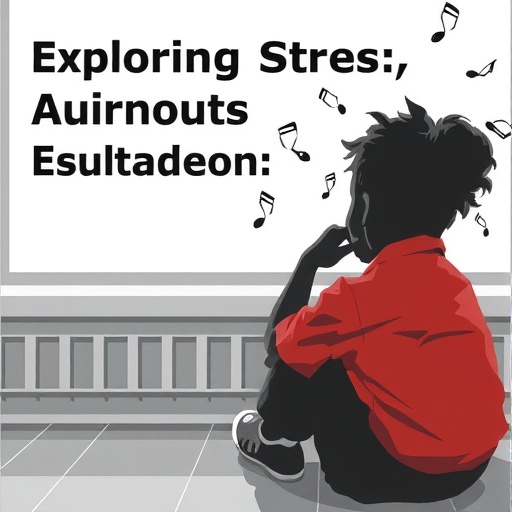Early childhood educators play a pivotal role in the foundational development of children’s lives, yet they often grapple with immense stress and burnout. New research by Merculief, Omar, and Aguilar delves into the intricate relationship between the pressures faced in the educational environment and the educators’ beliefs regarding racial equity. This significant study sheds light on the far-reaching implications of these dynamics, not only for the teachers but for the classrooms they foster and the diverse communities they serve.
Stress in early childhood education settings can stem from various sources, including demanding workloads, lack of resources, and the emotional labor of caring for children. These stressors have been well-documented in prior studies but are compounded by societal issues, including systemic inequities. The research highlights how educators’ beliefs about racial equity can influence their experiences of stress and burnout, shaping their interactions with students from diverse backgrounds. This intersection of personal belief and professional experience raises critical questions about the support systems available to educators.
The implications of educator stress are far-reaching. When teachers experience high levels of stress and burnout, the quality of education can suffer, adversely affecting student outcomes. The research indicates that the mental health of educators is directly linked to their effectiveness in the classroom. Burned-out educators may become disengaged, which can lead to a decline in the nurturing environment crucial for early childhood development. Understanding the triggers of this burnout is essential for implementing effective support and intervention strategies within educational systems.
Racial equity beliefs are integral to how educators perceive their responsibility in shaping inclusive and affirming learning environments. The study demonstrates that educators who possess strong beliefs in racial equity are more likely to engage positively with students and foster supportive classroom dynamics. In contrast, tensions may arise among those who struggle to reconcile their beliefs about equity with the realities they face in their work environment. This disconnect can further exacerbate feelings of isolation and burnout among educators, making it clear that addressing these beliefs is critical.
In exploring the connection between stress, burnout, and racial equity beliefs, the research employs qualitative and quantitative measurements, providing a comprehensive view of the challenges faced by early childhood educators. By utilizing surveys and interviews, the study reveals profound insights into educators’ experiences and the systemic barriers that contribute to their stress. It illuminates the pressing need for educational institutions to prioritize mental health resources and professional development focused on equity.
Moreover, recognizing the importance of community support cannot be overstated. The study emphasizes collaborative approaches to tackle educator stress and promote racial equity awareness. Support networks can facilitate open dialogue and sharing of resources, empowering educators to navigate these challenges more effectively. When colleagues come together to foster a culture of understanding and support, the negative impacts of burnout can be mitigated, ultimately leading to more positive outcomes for students.
The findings of the research call for significant policy changes within educational systems. By addressing the sources of stress that contribute to educator burnout, stakeholders can develop targeted interventions that are both preventative and responsive. This could involve increasing funding for mental health resources, implementing training programs centered around equity, and advocating for better working conditions within early childhood education settings.
Educators must also take an active role in their own wellness. Self-care practices, such as mindfulness and professional development opportunities, can play an essential role in mitigating feelings of stress and burnout. The study highlights that when educators feel supported both personally and professionally, they are more equipped to foster environments that affirm equity and inclusion for all students.
The intersection of stress, burnout, and racial equity beliefs underscores the urgency of addressing educators’ experiences on multiple fronts. Teacher training programs must not only focus on pedagogical skills but also incorporate discussions about mental health and equity. Preparing future educators with the tools to confront systemic challenges can create a robust framework for improving educational environments for both teachers and students.
As the study by Merculief et al. illustrates, the journey toward creating equitable and supportive early childhood education settings is ongoing. With the acknowledgment of the profound stress educators face and its implications for racial equity, educational stakeholders must strive for transformative change. This requires commitment at all levels, from individual educators to institutional leadership to policymakers.
In conclusion, the research provides vital insights that advocate for a holistic approach to educator well-being and student success. By addressing the nuanced relationship between educator stress, burnout, and racial equity beliefs, we can better support those laying the groundwork for future generations. An investment in educators is an investment in the children they nurture, setting the stage for equitable opportunities that will resonate through communities for years to come.
Subject of Research: The relationship between early childhood educator stress, burnout, and racial equity beliefs.
Article Title: Early Childhood Educator Stress, Burnout, and Racial Equity Beliefs.
Article References:
Merculief, A., Omar, J., Aguilar, G. et al. Early Childhood Educator Stress, Burnout, and Racial Equity Beliefs.
Early Childhood Educ J (2025). https://doi.org/10.1007/s10643-025-02037-z
Image Credits: AI Generated
DOI: https://doi.org/10.1007/s10643-025-02037-z
Keywords: Early Childhood Education, Educator Stress, Burnout, Racial Equity, Teacher Well-being, Systemic Inequities.




